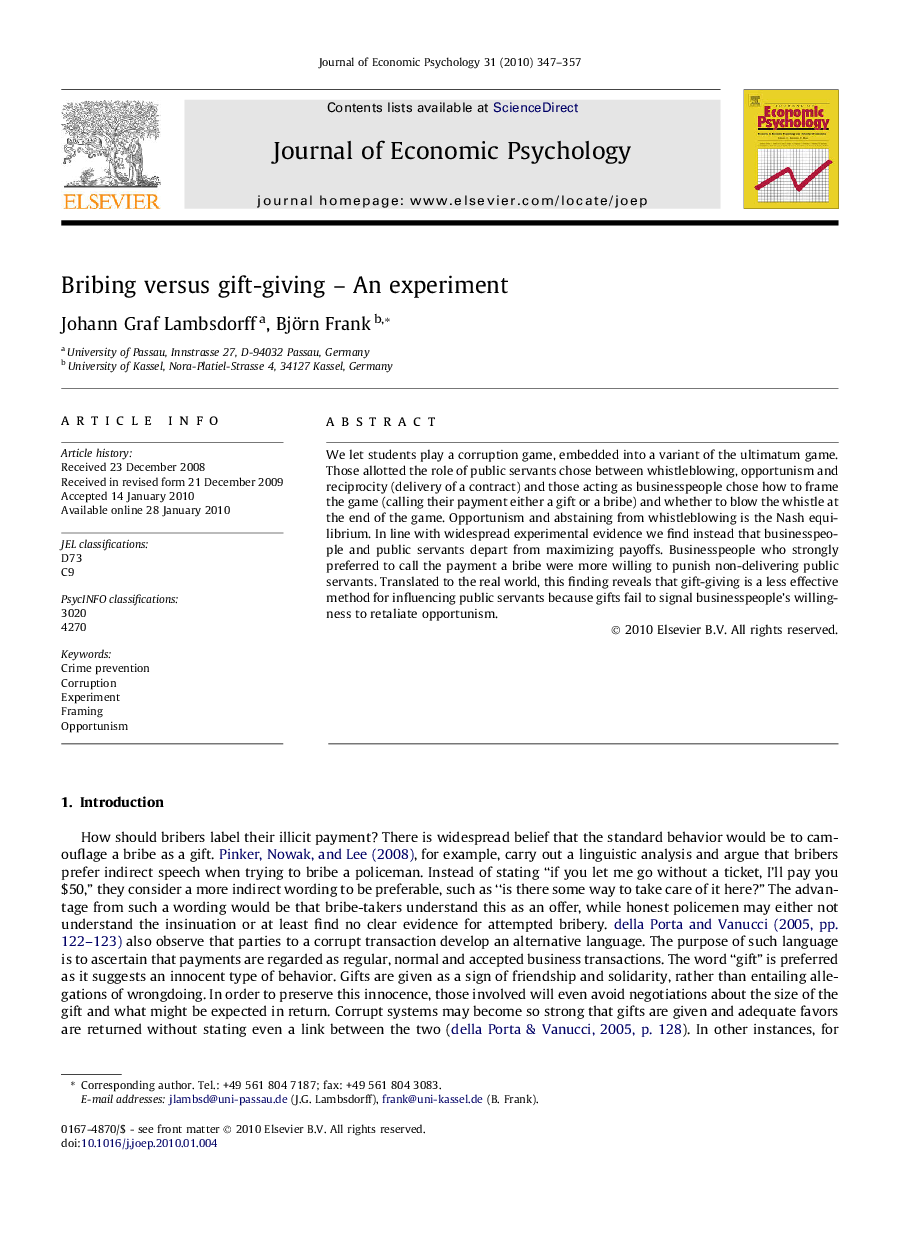| Article ID | Journal | Published Year | Pages | File Type |
|---|---|---|---|---|
| 885127 | Journal of Economic Psychology | 2010 | 11 Pages |
We let students play a corruption game, embedded into a variant of the ultimatum game. Those allotted the role of public servants chose between whistleblowing, opportunism and reciprocity (delivery of a contract) and those acting as businesspeople chose how to frame the game (calling their payment either a gift or a bribe) and whether to blow the whistle at the end of the game. Opportunism and abstaining from whistleblowing is the Nash equilibrium. In line with widespread experimental evidence we find instead that businesspeople and public servants depart from maximizing payoffs. Businesspeople who strongly preferred to call the payment a bribe were more willing to punish non-delivering public servants. Translated to the real world, this finding reveals that gift-giving is a less effective method for influencing public servants because gifts fail to signal businesspeople’s willingness to retaliate opportunism.
